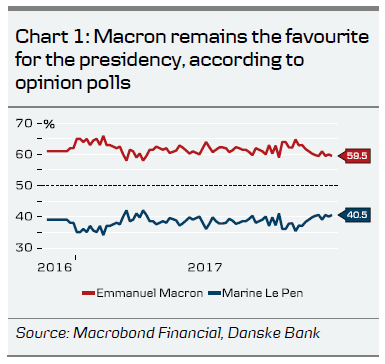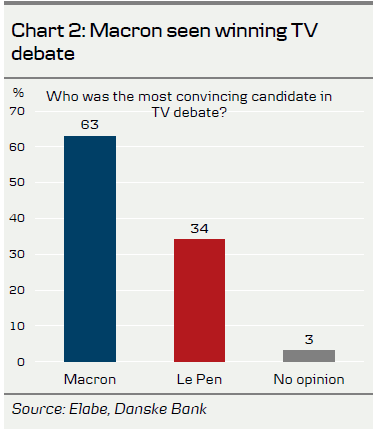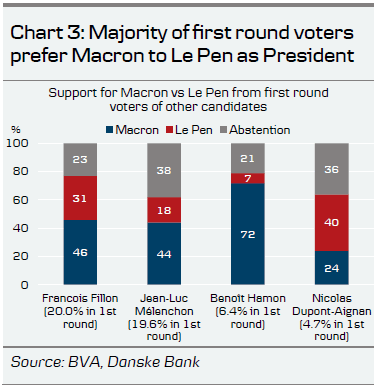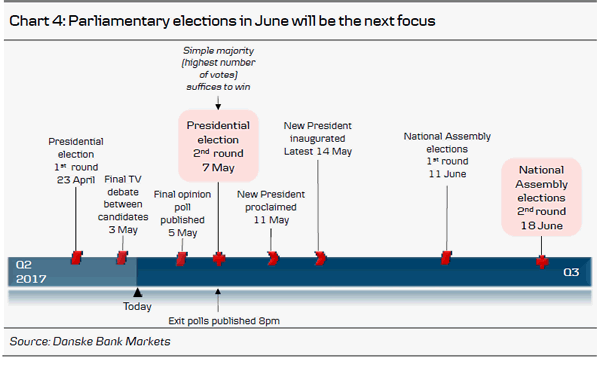On Sunday 7 May, the final round of the French presidential election will take place between the far-right candidate Marine Le Pen and independent Emmanuel Macron. As opinion polls have accurately predicted the first round result and pointed consistently towards a Macron win (see Chart 1), markets have largely priced out any French election risk premium over recent weeks. Yesterday’s TV debate marked the final decisive battle between the candidates. Importantly, 63% of viewers saw Macron as the most convincing candidate in a snap poll conducted by Elabe afterwards (see Chart 2).


As with the first round, exit polls by the main TV and radio channels will be released once voting stations close at 20:00 CEST on Sunday and watched closely by the market. Official election results will be released by the Ministry of the Interior over the course of the night and updated continually. Turnout estimations released during the day could give an early indication of how close the race will be, as lower participation would increase Le Pen’s chances of winning. By depicting Macron as the candidate of the political and financial elite over the past two weeks, Le Pen has already tried to convince previous Mélenchon supporters to abstain in the run-off. On Saturday, she also chose defeated first-round candidate Nicolas Dupont-Aignan as her Prime Minister, in a bid to attract his voters and broaden her support.
The election outcome will to a large degree depend on which candidate the previous François Fillon and Jean-Luc Mélenchon voters (some 14m) will support in the run-off. Both Fillon and Benoît Hamon have endorsed Macron since the first round and according to polls, Macron is the preferred choice over Le Pen for voters who have supported other candidates in the first round (see Chart 3). However, the great unknown remains how many of these will abstain in the second round due to dissatisfaction with the candidate choice available to them in the run-off. For now, Le Pen’s chances of winning look increasingly slim, and she can only hope for a large abstention rate on Sunday to swing the vote in her favour. Following the run-off, focus will turn quickly to the parliamentary elections in June, which will determine the legislative support of the new President (see Chart 4).


